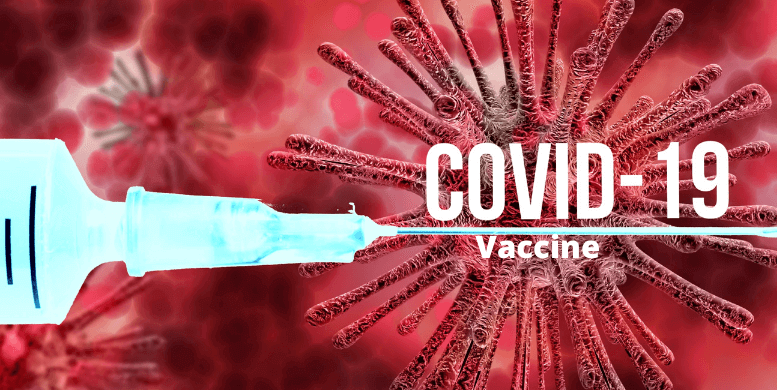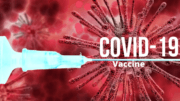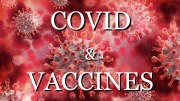Learn why this scientist is calling for the immediate suspension of COVID booster shots and mRNA vaccines, and how they can lead to an unprecedented ‘medical disaster.’ Plus, see the unintended cellular immune responses occurring in up to 30% of those who have received the COVID shot.
New Safety Concerns About the COVID Shots Arise
Analysis by Dr. Joseph Mercola
STORY AT-A-GLANCE
- According to research published in December 2023, the mRNA COVID shots suffer high rates of ribosomal “frameshifting,” which causes your cells to produce off-target proteins that can trigger unintended immune reactions.
- According to the authors, off-target cellular immune responses occur in 25% to 30% of people who have received the COVID shot.
- The U.S. Food and Drug Administration and Australia’s Therapeutic Goods Administration are refusing to release the RNA stability data they supposedly relied on when approving a change to Pfizer’s shot that allowed it to be transported and stored at temperatures of -20 degrees Celsius instead of -70 C.
- The FDA also authorized Pfizer to swap the phosphate-buffered saline buffer used in the adult formulations, to a tromethamine (Tris) buffer in the children’s version. FDA did not require any kind of testing to be conducted, and no data have been released in support of its decision to allow the swap.
- According to research published in 2023, the nanolipid in Comirnaty, made by Pfizer/BioNTech, is toxic to cells and triggers proinflammatory cytokines and reactive oxygen species that can disrupt the mitochondrial membrane causing it to release its content, cause RNA mistranslation, DNA mutations, destruction of the nuclear membrane and more. Frequent repetitions of COVID boosters and/or using mRNA in other vaccines poses a grave public health risk, the scientist warns.
According to research published in the December 6, 2023, issue of Nature, the mRNA COVID shots suffer from high rates of ribosomal “frameshifting,” which causes your cells to produce off-target proteins with unknown effects.1,2,3 As explained in that paper:4
“A key feature of therapeutic IVT [in vitro-transcribed] mRNAs is that they contain modified ribonucleotides, which have been shown to decrease innate immunogenicity and can additionally increase mRNA stability, both of which are favorable characteristics for mRNA therapies …
Pseudouridine (Ψ) is known to increase misreading of mRNA stop codons in eukaryotes, and can affect misreading during prokaryotic mRNA translation. 1-methylΨ does not seem to affect codon misreading, but has been shown to affect protein synthesis rates and ribosome density on mRNAs, suggesting a direct effect on mRNA translation …
Here we demonstrate that incorporation of N1-methylpseudouridine into mRNA results in +1 ribosomal frameshifting in vitro and that cellular immunity in mice and humans to +1 frameshifted products from BNT162b2 vaccine mRNA translation occurs after vaccination.
The +1 ribosome frameshifting observed is probably a consequence of N1-methylpseudouridine-induced ribosome stalling during IVT mRNA translation, with frameshifting occurring at ribosome slippery sequences …
[T]hese data highlight potential off-target effects for future mRNA-based therapeutics and demonstrate the requirement for sequence optimization.”
Synthetic RNA Is Frequently Misread
In layman English, the inclusion of synthetic methylpseudouridine causes the ribosomes (which are responsible for reading the code) to misread the RNA’s instructions. RNA code consists of groups of three bases (codons) that must be read in the correct order for a desired protein to be created.
Because the methylpseudouridine is not a perfect fit, it causes the decoding process to stall and shift (hence the term “+1 ribosomal frameshifting”). There’s basically a stutter in the decoding process, as your cells don’t understand what’s being asked for, and this stuttering causes the decoding to skip a letter, thereby garbling the entire code.
As a result, unintended “nonsensical” proteins are produced instead of the desired SARS-CoV-2 spike. That, in turn, means that your immune system will not produce antibodies against SARS-CoV-2, but rather against these aberrant proteins.
According to the authors, off-target cellular immune responses occur in 25% to 30% of people who have received the COVID shot, and as noted by molecular virologist David Speicher Ph.D.:5
“Whenever our cells create an abundance of unintended proteins or prevent production of appropriate proteins it could lead to an unintended immune response with a huge potential to cause harm.”
Not knowing exactly what proteins are being produced is far from the only problem with these gene-based shots, though.
Why Are Regulators Hiding RNA Stability Data?
As reported by investigative journalist Maryanne Demasi, Ph.D., the U.S. Food and Drug Administration and Australia’s Therapeutic Goods Administration both refuse to release the RNA stability data they supposedly relied on when approving a change to Pfizer’s shot that allowed it to be transported and stored at temperatures of -20 degrees Celsius instead of -70 C.
Pfizer has also refused to disclose those data. Why is that? What do the data reveal that they don’t want us to see? Demasi writes:6
“… when the FDA granted authorization7 in December 2020, it specified the vaccine had to be stored between -80ºC and -60ºC, requiring special ultra-cold freezers, which proved challenging to areas with limited resources.
But by February 2021, Pfizer had apparently solved the problem. It submitted new ‘RNA stability data’ to the FDA demonstrating the vaccine could be stored in conventional freezers (-20ºC) and no longer required ultra-cold freezers.
The FDA approved8 the change swiftly. Two months later, Australia’s Therapeutic Goods Administration (TGA) also approved9 Pfizer’s application, allowing unopened vials to be stored at -20ºC for up to 2 weeks.
Storage temperature wasn’t the only change. Drug regulators also approved extensions to the vaccines’ expiry dates. Various batches of Pfizer’s vaccine, for example, had their expiry dates extended by one year (FDA10) or 6 months (TGA11).
But given the sensitivity of RNA to changes in temperature and storage duration, what stability data did the regulators rely on to green-light these decisions?”
As it stands, we have no idea, and that’s a problem. As Phillip Altman, who has more than four decades of experience in clinical trials and regulatory affairs, told Demasi,12 “It’s critically important to know about the stability of RNA in the vaccines because if the RNA disintegrates, then the efficacy of the vaccine goes down.”
Of course, over the past three years, evidence conclusively shows that the shots are near-useless when it comes to efficacy. What’s worse, efficacy actually becomes negative after a few months, meaning they leave you more prone to infection than your unjabbed peers.
Does RNA Instability Have Something to Do With ‘Hot Lots’?
Altman is also concerned about safety, because data reveal some shots contain far higher doses of mRNA than others, and such “hot lots” are associated with more adverse events and deaths.13 Mounting research shows the shots do not contain “nothing but intact RNA.”
They also contain fragments of RNA, as well as bits of DNA, both of which can have deleterious health effects. Demasi quotes David Wiseman, Ph.D., a research bioscientist involved in medical product development, who told her:14
“We need to know about the bits of RNA that are not intact. It’s possible that small fragments of mRNA also have biological effects such as inflammation or controlling how other RNA works.”
What Data Did FDA Rely on When Authorizing Buffer Swap?
The FDA also authorized another swap that affected RNA stability, and in this case, they appear to have done so without any testing whatsoever. In October 2021, Pfizer amended the formulation of its COVID jab for children aged 5 to 11 years, swapping out the phosphate-buffered saline used in the adult formulations, to a tromethamine (Tris) buffer.15
The reason for the swap was to improve the stability profile of the shot, allowing the mRNA to resist degradation so it could be stored for up to 10 weeks in a standard freezer. The FDA authorized the swap in mid-December that year,16 but as Wiseman told Demasi:17
“If the new buffer helped stabilize the mRNA, then it would probably impact the amount of spike protein being produced or alter the way the lipid nanoparticles behaved in the body. But where were the data when the FDA made that decision? The FDA never insisted the new formulation be tested, at least in animals, before it was injected into children.”
Considering the shots were intended for healthy children, why did they not insist on additional testing?
“It’s time for regulators to restore public trust and release these sorts of data. Until then, why should we inject anyone, especially children, with a vaccine without disclosing these, and other kinds of data?” Wiseman says.18
Scientist Warns of Intrinsic Cytotoxicity of Nanolipid
The safety of the nanolipid used to encase the mRNA in the shots is also being questioned. In the video above, independent researcher Gabriele Segalla, an Italian biochemist who specializes in the chemistry of microemulsions and colloidal systems, discusses his findings, presented in two peer-reviewed reports published in the International Journal of Vaccine Theory, Practice and Research (IJVTPR).
The first, published in late January 2023, titled “Chemical-Physical Criticality and Toxicological Potential of Lipid Nanomaterials Contained in a COVID-19 mRNA Vaccine,”19 details the toxic potential of the nanolipid in Comirnaty, made by Pfizer/BioNTech. Importantly, this paper highlights the potential for reactive oxygen species (ROS) formation in various organs, including the kidneys, liver, heart and brain. According to this paper:
“Of particular concern is the presence in the formulation of the two functional excipients, ALC-0315 and ALC-0159, never used before in a medicinal product, nor registered in the European Pharmacopoeia, nor in the European C&L inventory.
The current Safety Data Sheets of the manufacturer are omissive and non-compliant, especially with regard to the provisions of current European regulations on the registration, evaluation, authorization and restriction of nanomaterials.
The presence of electrolytes in the preparation and the subsequent dilution phase after thawing and before inoculation raise well-founded concerns about the precarious stability of the resulting suspension and the Polydispersity index of the nanomaterials contained in it, factors that can be hypothesized as the root causes of numerous post-vaccination adverse effects recorded at statistical-epidemiological level.”
mRNA ‘Vaccines’ Pose Grave Public Health Risks
The second paper, “Apparent Cytotoxicity and Intrinsic Cytotoxicity of Lipid Nanomaterials Contained in a COVID-19 mRNA Vaccine,”20 published in mid-October 2023, focuses on the nanolipid ALC-0315.
It describes how ALC-0315 — one of the molecules used to create Comirnaty’s nanoparticle delivery system — forms “proinflammatory cytokines and ROS that can disrupt the mitochondrial membrane and release its content, cause RNA mistranslation, polymerization of proteins and DNA, DNA mutations, destruction of the nuclear membrane and consequent release of its content.”
“Thus, the prospect of frequently repeated COVID ‘booster shots,’ and also that of extending mRNA technology to vaccines against other pathogens or non-infectious diseases, conjures up a very grave public health risk,” he writes.
According to Segalla, the ALC-0315 “is not suitable for intramuscular application” for a number of reasons, including the fact that it does not allow for the “proper transfection of host cells, despite what is stated by EMA (European Medicines Agency) in its Assessment report dated 19 February 2021, in flagrant contradiction with the same bibliographic source therein cited.”
In short, the nanolipid particles are toxic to cells, and can “shed in unpredictable biological locations, even far from the site of inoculation,” due to their “exceptional penetrability, mobility, chemical reactivity and systemic accumulation.” The nanolipid used in the shots “can lead to an unprecedented medical disaster,” Segalla warns. He’s now calling for the immediate suspension of their use.
Resources for Those Injured by the COVID Jab
Based on data from across the world, it’s beyond clear that the COVID shots are the most dangerous drugs ever deployed. If you already got one or more COVID jabs and are now reconsidering, you’d be wise to avoid all vaccines from here on, as you need to end the assault on your body. Even if you haven’t experienced any obvious side effects, your health may still be impacted long-term, so don’t take any more shots.
If you’re suffering from side effects, your first order of business is to eliminate the spike protein — and/or any aberrant off-target protein — that your body is producing. Two remedies shown to bind to and facilitate the removal of SARS-CoV-2 spike protein are hydroxychloroquine and ivermectin. I don’t know if these drugs will work on off-target proteins and nanolipid accumulation as well, but it probably wouldn’t hurt to try.
The Front Line COVID-19 Critical Care Alliance (FLCCC) has developed a post-vaccine treatment protocol called I-RECOVER. Since the protocol is continuously updated as more data become available, your best bet is to download the latest version straight from the FLCCC website at covid19criticalcare.com.21
For additional suggestions, check out the World Health Council’s spike protein detox guide,22 which focuses on natural substances like herbs, supplements and teas. Sauna therapy can also help eliminate toxic and misfolded proteins by stimulating autophagy.





